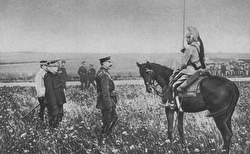
The BBC is currently interviewing candidates for the post of “head of change”. Potential applicants have had to wade through screeds of drivel about what the task entails (the successful candidate will “engage senior stakeholders to understand change impacts” and take “non-permanent line-management responsibility for change managers on change programmes”). Such semi-literate verbiage reflects the influence of consultants on an organisation that once had a clear and lofty vision and considered itself a guardian of the language.
Organisations are vulnerable to consultants and other snake-oil vendors when the top management hasn’t much clue what day of the week it is. Among much else, the consultants’ advice to the BBC was to reduce its superabundance of job titles. So the BBC will hire a head of change. Or, rather, it turns out, it will hire four of them, at a salary of £78,000 each. You could not make it up, and newspapers did not hold back on the job’s similarity to the ridiculous “head of values” and “director of better” in John Morton’s very funny satire W1A. The BBC doesn’t need external enemies. It can supply them in-house.
Before we go any further, a declaration of interest and prejudice. I reported and presented programmes broadcast on the BBC for many years and continue to do so. The big question — hinted at but never explicitly put in much of the critical newspaper coverage — is whether the world would be a better place if the organisation did not exist. My answer to that is an unequivocal “no”.
Only a fool would deny that it has problems. People have been laying into the organisation since it was invented, usually for being too buttoned-up or too unbuttoned. But its current challenges are of a different order — and potentially existential. It was testing enough when the BBC faced off in competition for viewers merely against ITV, a commercial channel that saw no crime in soap operas. Now it faces potentially crushing competition from American behemoths such as Netflix and Amazon, with apparently bottomless pockets.
At the same time, political polarisation means that its perception of impartiality is increasingly being questioned by both left and right.
Apart from periodic outbreaks of the sport of “fantasy railways” and unwavering support for the NHS, about which Britain has a blind spot, the mood of the times is not kind to state enterprises. A widespread discomfort with the extraction of private profit from public services does not translate into enthusiasm for the BBC, which is decried by envious critics as “too big”. It is big and has seemed incapable of keeping its mitts off any form of communication, from local radio to the internet.
When it comes to other cuts in the public sector, the BBC finds itself in its characteristic position of cheerleading for the “something must be done” centre-left opposition to austerity. The BBC is not unpopular, amply justifying its old nickname of “Auntie” with its cloth-eared somnambulism in recruiting a head of change. But no one dares to argue publicly for a rise in the yearly licence fee from its current level of £150.50.
One row after another comes along and catches it unprepared: programmes that are too downmarket; programmes that are too upmarket; the way its web offering distorts the market; the fees paid to its stars; the inequality of pay between genders; the great size and impenetrable style of its management.
It is tarnished by memories of the mess it made of investigations into the abuse of children by its vacuous creation, Jimmy Savile. It commissions The Great British Bake Off, then watches as it is lured to a rival for more dough. It struggles uncomfortably through the Brexit referendum campaign like a man in a blindfold navigating a fire escape, operating on the assumption that a point made on one side must be “balanced” by a point on the other, however tendentious. The organisation “lurches from crisis to crisis”, says Carolyn Fairbairn, former head of strategy at both the BBC and ITV, now director-general of the CBI.
But right now you would not think there was a crisis. The BBC merely reflects the mood of the nation — anxious, unconvinced and slightly angry (though with no focus for its grumbles). “I think the BBC is in good heart,” says Ken MacQuarrie, a corporation lifer who sits on the board and rejoices in the title of director of nations and regions. This sounds dangerously like complacency, but the organisation accepts occasional mud-chucking as the price to be paid for public ownership.
Perhaps assaults from the Daily Mail are just a British way of demonstrating affection: the paper doesn’t lay into commercial rivals with anything like the same level of moral outrage. In an ill-at-ease nation, the BBC betrays no ontological anxiety. It was born, after all, in the 1920s, when men still sported spats; wore cardigans and carpet slippers in the 1950s; looked on like a benevolent headteacher at the 1960s and 1970s; and now behaves like a silver surfer in the digital society. In the end, as former chairman Michael Grade tells me, “no prime minister wants to go down in history as the person who destroyed the BBC”.
This conviction ought to give confidence, which is perhaps why the BBC is going through one of its periodic fits of faux-modesty. The tentativeness is the consequence of previous hubris and the huge disruption caused by the fact that increasing numbers of people choose to watch television when they want to, not when some scheduler thinks they ought to do so. Why wait until 10pm to get the news? The BBC was commendably early to spot the possibilities of the online world.
There may soon come a point when the idea of “broadcasting”, with its suggestion of mass audiences glued to the same thing at the same time, looks as modern as the goatskin parchment on which acts of parliament are written and stored. But it is to broadcasting that the organisation is committed in its name, its staffing and in most of its effort.
The BBC may have been prescient in seeing the possibilities of the internet. But I am currently watching the BBC adaptation of Charles Dickens’ novel, Little Dorrit and, in order to do so, I have had to pay Amazon £16.99 for the privilege of having the thing streamed to my home in HD. I could equally well have bought a boxed set for £9.99. Surely, you think, it’s available on the BBC’s much-trumpeted iPlayer. It is not. The closest you can get to this marvellous production in iPlayer’s catalogue is Little Britain (of which eight episodes are available).
The unavailability reflects the BBC’s appalling feebleness in negotiating transmission rights. It did not want to appear tough for fear of alienating ignorant politicians labouring under the antediluvian misapprehension that independent production companies are like artists in garrets, when some of them are more powerful than ITV. There is a simple question here: why should British television viewers have to add to the profits of vast American corporations to see something that they have already paid for through their licence fee?.
If you want to see the BBC’s 2016 smash hit drama The Night Manager on iPlayer, you’ll have to make do with “Night Night, Waffle”, which sounds a bit like politics on Newsnight, but is in fact about Waffle the Wonder Dog. Even the BBC’s (rightly) much-applauded cop thriller Line of Duty can’t be viewed on iPlayer any more — though the catalogue shows you can get an edition of the 1974 teatime panel game What’s My Line? .
There is something madly absent-minded about an organisation that makes what it calls “landmark” programmes and then allows them to sink in the sands, like Shelley’s statue of Ozymandias. On the web, another massive American corporation advertises the Apple TV App with pictures from Phoebe Waller-Bridge’s BBC Three comedy Fleabag. In this case, the BBC has decided it cannot afford not to be on the Apple platform (as have ITV, Channel 5 and Amazon). But it does seem odd that yet another tax-dodging American corporation can use licence-fee-funded drama to sell its wares.
In the end, everything comes down to money.
Most television stations derive their income from selling advertising space. The BBC escapes that chore by being funded through the licence required of anyone who wishes to watch live television or the BBC iPlayer. As its passive-aggressive letters to supposed defaulters remind them, this is a legal obligation, defiance punishable by a £1,000 fine. The charge yielded an income last year of £3.79bn (not including the £1.17bn that comes from selling shows, formats and such things). The licence fee has given the BBC a charmed life. Freed from commercial pressure, it has acquired a sort of nobility denied to commercial broadcasters and become one of Britain’s most trusted brands worldwide.
As with its weakness in negotiating broadcast rights for classic serials, the corporation has often been the author of its own misfortunes. It shot itself in the foot by agreeing to pay for the BBC’s international services, which were previously funded by government. It also finds itself giving free television licences to the over-75s, because a Labour government once thought it was a good idea.
As in most parts of the public realm, every producer complains of budget cuts. Could The Crown have been made by the BBC? Not unless you wanted a single horse to stand for the entire Household Cavalry and a State Coach made out of cardboard and sticky-back plastic. Netflix is said to have spent £100m on the series.
How much longer can the licence fee last? Government talk of reforming the BBC usually ends up with nothing much more than a change to the leadership structure (from “governors” to a “trust” to a “board” — all very exciting). It is three years since the self-selecting know-alls on the Commons Committee on Culture, Media and Sport said the licence fee was becoming “anachronistic” and should be scrapped one day. They did not inconvenience themselves by being specific on dates, and favoured replacing it with a household levy similar to the one imposed in Germany, which may be a solution even worse than the problem it was supposed to address.
Which brings us to the core question for the BBC. What is it for? What is it that can only be provided by public subsidy and would not be delivered by a commercial company? It is very simple, for British television has already demonstrated how funding determines content.
Who can now recall that once upon a time ITV had world-class current-affairs programmes? They were thrown overboard when the network was forced to compete for advertising.
When the BBC last sought to have its Royal Charter renewed(it happens every 10 years, most recently in 2017), its manifesto included four domestic duties: promoting democracy, enriching the nation’s cultural life, educating the country and helping us to understand each other. No one would dissent from them now, and they are, surely, more noble ambitions than turning a fast buck. In the age of fake news, they are more important than ever.
No one likes paying taxes, and the challenge is to persuade people that provenance has legitimate costs which have somehow to be met. It is commonplace that teenagers and young twenty-somethings don’t pay for anything online. But we should not delude ourselves that news is somehow free of charge, which it is not.
Social media accord parity of esteem to every fruitcake in the world and editorial oversight demands the means to employ journalists. The BBC can draw some comfort from a plebiscite in Switzerland in March, when almost three-quarters of those voting rejected a proposal to abolish compulsory licence fees. To command such public support the BBC must command the loyalty of most of the public.
The task, then, seems simple enough: make things that people want to watch or listen to. The corporation long ago decided that the days are gone when factories listened to Workers’ Playtime and families gathered to watch What’s My Line?. It tries to service different audiences with different products, from mass-produced music to niches such as BBC Alba (for Scottish Gaelic speakers). The distinction can be seen in, for example, policies on humour on radio:
BBC Radio 1: Blokey jokes.
BBC Radio 2: Old jokes.
BBC Radio 3: Classical music is no laughing matter.
BBC Radio 4: Comedy slots with occasionally amusing jokes.
BBC Radio 5 Live: No time for jokes.
Spectacular events can draw viewers from all these audiences, which is why sport especially matters. There is no arguing with the fact that the BBC has a distinguished history in sports broadcasting. For a while, it even managed to make the tedium of the University Boat Race vaguely watchable. But commercial broadcasters can spend much more when negotiating the right to show mainstream sporting events.
If it could only cultivate a little humility, the BBC might find it easier to generate public support
The BBC still has the Olympic and Commonwealth Games — and Wimbledon — for the foreseeable future. But it no longer broadcasts much live football, has abandoned most horseracing, given up half of the Rugby Union Six Nations championship and broadcasts none of the Open or US Open golf championships live. It long ago lost television coverage of cricket Test matches.
Now it has lost even radio rights to next winter’s England cricket tours. As the former banker and latest chairman of the BBC Sir David Clementi observes, the days of BBC dominance in sports coverage are gone forever. After the mad decision to spend millions on Formula One motor racing — a racket in just about every sense — the BBC is unlikely to bid for any cage-fighting championships, and the list of “crown jewel” sporting events required by law be broadcast live on terrestrial television looks more vulnerable by the year. Without firm evidence it has captured most of the nation’s eyeballs, the licence fee is hard to justify.
In the end, what happens to the BBC is a political judgment. It is about the sort of country we want to be. Right now, it can be quite hard to answer the question asked the other day by a very truculent young taxi driver who spends his time listening to LBC and watching Sky: “Why should I have to pay for something I don’t use?” Blather about it being the nation’s dominant cultural organisation won’t do. Nor will my own preferred option of asking what would be gained by killing it.
The BBC licence fee is unusual, and the organisation is definitely going to have to develop new collection methods. But a licence fee is surely preferable to making programmes to help advertisers exploit viewers. If it could only cultivate a little humility, the BBC might find it easier to generate public support. The way to overcome the reluctance of many young people to pay for content is to make programmes they want to watch. It can only do this by a relentless focus upon quality and originality. Encouragingly, one of the BBC’s most popular recent programmes with 16- to 34-year-olds was the nonagenarian David Attenborough’s Blue Planet 2. There is some evidence that social media produced a fear of missing out if they didn’t see it early.
There’s a lesson there.


